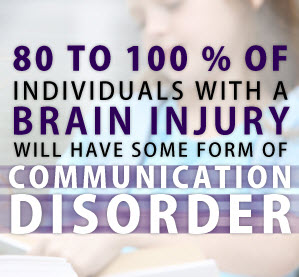 If you or a loved one has recently been in an accident and suffered a traumatic brain injury (TBI) as a result, you may not know what to expect. It is particularly difficult to predict because no two brain injuries are the same.
If you or a loved one has recently been in an accident and suffered a traumatic brain injury (TBI) as a result, you may not know what to expect. It is particularly difficult to predict because no two brain injuries are the same.
The signs and symptoms of a TBI can be subtle. In fact, the symptoms may not appear for several days or weeks after the original injury. The true extent of the effects may not be apparent for some time.
When a brain injury occurs, the functioning of a variety of components of the brain can be affected. Since the brain is so complex, the particulars of the injury will determine which symptoms manifest.
The brain regulates the function of the rest of the body, and therefore the impact of a TBI is not limited to the brain. The changes can be temporary or permanent, and can result in ongoing impairment or the inability to perform certain tasks.
Physically, TBI can result in a variety of difficulties, including problems with:
- Muscle coordination
- Sleep
- Any of the five senses
- Fatigue
- Weakness
- Balance/Dizziness
- Chronic pain
- Sexual functioning
- Speech
- Paralysis
Different symptoms are associated with injuries to different parts of the brain. For example, the onset of fatigue is common after an injury to the frontal lobes, while dizziness and balance issues are likely following damage to the brain stem. In a survey conducted by the Ontario Brain Injury Association (OBIA), 71% of respondents with TBI had trouble with dizziness some or most of the time.
The survey also found that vision is more likely to be affected than hearing, as 26% of people with TBI who responded had trouble with their vision most of the time; 18% had trouble with hearing most of the time.
Changes in cognitive functioning, personality, and behaviour are also common results of a TBI. Any aspect of these processes could be affected, including:
- Memory
- Decision making
- Planning and sequencing
- Communication, reading, and writing
- Thought processing
- Anger management
- Appropriateness of behaviour
- Emotional control
- Depression, anxiety, coping skills
Memory problems are one of the most common cognitive issues that emerge following a TBI. According to the study by the OBIA, 95% of respondents claimed to have trouble remembering some or most of the time. Likewise, 93% reported trouble concentrating some or most of the time.
These potential difficulties are a huge adjustment for the person with TBI, because they often retain their intellectual abilities but simply have trouble controlling and expressing their thoughts and actions. It is vital for family members to be supportive and to understand that even if the person shows no physical signs of injury, changes in personality and ability to control mood are common; and importantly, these changes are not under the person’s control.
Traumatic brain injury and acquired brain injury is a large topic. In the coming months, we will be delving further into this important issue, to help open the door to understanding this “invisible” disability.
If you or a loved one has suffered a TBI in an accident or vehicle collision in Ontario, you can seek the help of an experienced personal injury lawyer to help ease the financial burden. Contact us today for immediate support and a free consultation.
Image source: www.obia.ca

